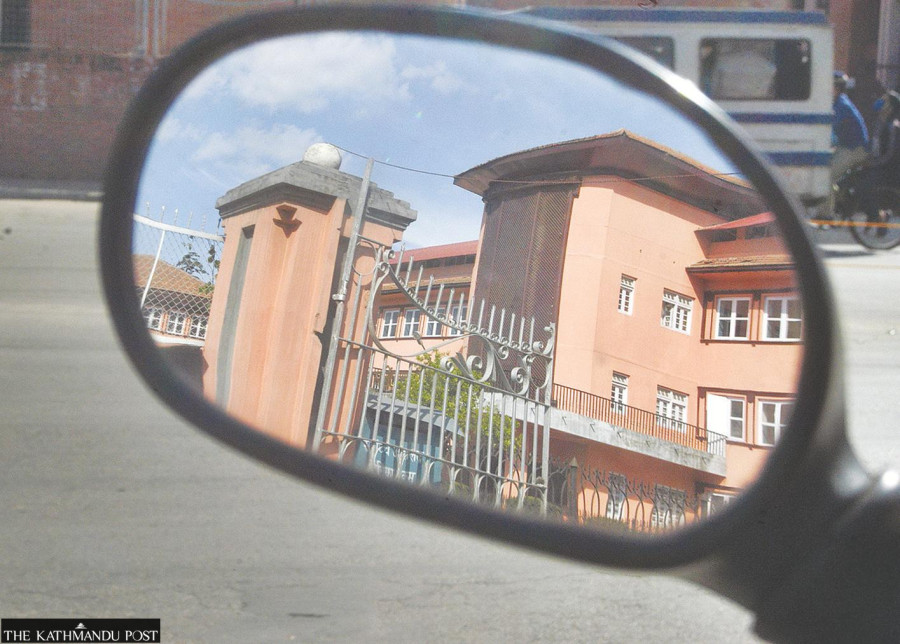National
Constitutional Bench’s inaction holding up vital national issues
Supreme Court records show the last time the bench conducted hearings was more than two months ago.
Binod Ghimire
In 2017, advocate Sunil Ranjan Singh filed a writ petition at the Supreme Court challenging the move of the Nepali Congress and the CPN (Maoist Centre) to register an impeachment motion against the then Chief Justice Sushila Karki.
Petitioner Singh argued that the House should not impeach justices just because some parliamentarians are dissatisfied with court verdicts. Singh also demanded the Constitutional Bench of the apex court to define the criteria for impeachment. Five years have passed since the petition was registered, but the bench is yet to issue the final verdict in the case.
The hearing has been deferred for 35 times since 2017. The court first slated June 29 to pass the verdict which was then postponed to August 3 and again to November 23. “This is very unfortunate. Had the court issued the verdict on my petition it would have set a criteria for impeachment,” Singh told the Post. “These days I prefer not to register petitions directly in the Constitutional Bench to avoid delay.”
Singh is one of five petitioners who on September 23 moved the court against President Bidya Bhandari’s refusal to authenticate an amendment bill on the Citizenship Act within the 15-day constitutional deadline. Though the issue was related to constitutional interpretation, Singh said he chose not to register the petition directly in the Constitutional Bench fearing it could meet the same fate as his 2017 petition on impeachment.
“I deliberately avoided the Constitutional Bench although there are chances that my petition would be forwarded to the bench for the final hearing,” he said. “The bench must be more active as there are several interpretations it needs to make in the initial years of constitution implementation. But on the contrary it is totally inactive.”
Article 137 of constitution envisions a five-member Constitutional Bench led by chief justice to mainly settle disputes related to jurisdiction between the federation and provinces, between provinces, between a province and local units and among the local units. It is also entrusted with giving verdict in cases that call for constitutional interpretation.
However, its sluggishness has not just delayed decisions on crucial petitions like the one filed by Singh, but also hampered the implementation of federalism, which is still new to Nepal. In addition to several other petitions by advocates, the Madhesh Province has registered six different petitions claiming the federal government had breached its jurisdiction by barring the province from enjoying its constitutional authority.
On June 6, 2019 the then KP Sharma Oli government decided to bring the Sagarnath Forest Development Project under the Timber Corporation of Nepal. The government of the Madhesh Province, previously Province 2, challenged the decision at the Supreme Court, arguing that the federal government had breached the jurisdiction of the province. It argued that that the federal government had no authority to take a decision on the forest project that fell under its jurisdiction.
It was the first petition by any provincial government registered against the federal government, challenging the latter’s decision. However, except for issuing an interim order, the court hasn’t conducted a final hearing on the petition even three years after it was registered. Same is the case with five other petitions the province filed.
The Supreme Court’s records show it has been more than two months since the last hearing by the Constitutional Bench on August 2. There are 230 petitions the bench has to clear, according to officials at the court. Though there was a practice of constituting the bench every Wednesday and Friday, it hasn’t been followed, of late.
Constitutional expert Dinesh Tripathi says it is wrong to keep the bench inactive while there are hundreds of pending cases.
He is one of the petitioners who challenged the recommendation and appointments of 52 chairpersons and members to various constitutional commissions by the government on two different occasions—December 2020 and May 2021. The erstwhile Oli government amended the Constitutional Council Act to pave the way for three among the five members in the council to make recommendations for appointments in constitutional bodies. Those recommended by the council were appointed without parliamentary hearing.
“Those appointed unconstitutionally would have been removed from their positions had the verdict been passed on time,” said Tripathi. “It is clear that the Constitutional Bench hasn’t been able to function as it is supposed to.”
Supreme Court officials say the bench hasn’t worked for long as former acting Chief Justice Deepak Karki was on leave for a month before he retired on October 2. Hari Krishna Karki has succeeded him as the acting chief justice.
“The bench will resume hearing soon. Most probably from Wednesday,” said Poudel, the spokesperson at the court.




 13.12°C Kathmandu
13.12°C Kathmandu














